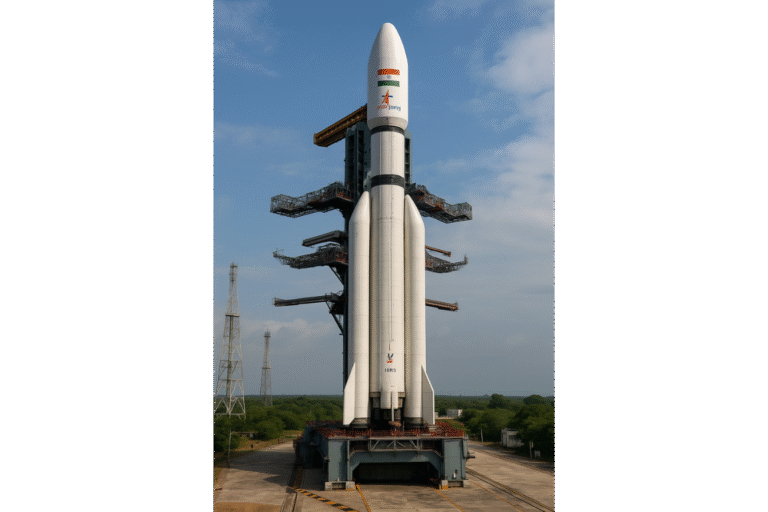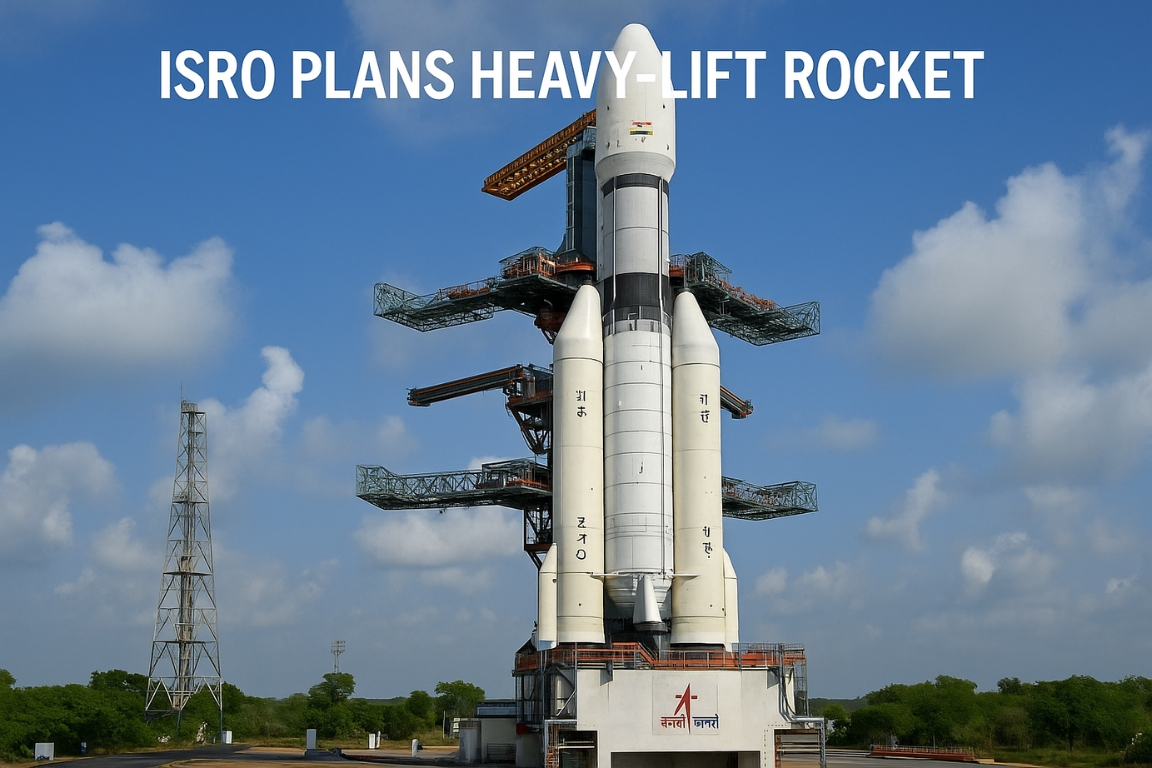ISRO has proposed a new heavy-lift launch vehicle capable of carrying 75,000 kg payload, marking a major leap in India’s space capabilities.
Background
- First indigenous launch vehicle: SLV-3 (1980s), carried only 35 kg.
- Now, ISRO aims for a rocket as tall as a 40-storey building.
- Part of India’s long-term vision to enhance self-reliance in space exploration.
Features of the Heavy-Lift Rocket
- Payload capacity: 75,000 kg to space.
- Next Generation Launch Vehicle (NGLV) with recoverable first stage (similar to reusable rockets).
- Designed to support deep space missions, space stations, and human spaceflight.

ISRO’s Upcoming Missions
- Gaganyaan – India’s first human spaceflight programme, with unmanned mission soon.
- Chandrayaan-4 – approved for advanced lunar exploration.
- Bharathiya Antariksh Station – planned by 2035, first modules from 2027.
- Indigenous Moon Mission (2040) – Indian astronaut to land and return safely.
- Venus Orbiter Mission – spacecraft approved to study Venus.
Significance
- Enhances India’s role in global space exploration and commercial launches.
- Supports long-term vision of space station and interplanetary missions.
- Strengthens India’s strategic and scientific leadership in space technology.





